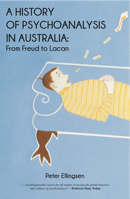We live in an era that lionizes a love of beginnings. It is what media – and through it – imagination-strives for. But discovery, no matter how novel, is never original. It draws on the past. The challenge for the writer is to acknowledge that his story is rebuilt from the perspective of the present. […]

The Unforeseen and unclassifiable in Psychoanalysis
Unforseen is, of course, a staple of analysis, and a welcome one at that. We don’t aspire to a forensic model of treatment, nor uniformity in either diagnosis, or analytic orientation and unfolding. Psychoanalysis starts from the position that there is no precise cure, but that we need different ways of living with ourselves, and […]

The impossible in Psychoanalysis
In psychoanalysis, we are dealing with the unforseen-whether it is on the side of the patient or the analyst. And much of what we find, and what we are, is unclassifiable – not that it has no status or context within a praxis – a conceptual and practical model, of the human subject – it […]

Men and the art of Motorcycles
I n 1948, Albert Camus wrote to his publisher Blanche Knopf asking if the sales of his novel, The Outsider, were as good as the reviews because “ je voudrais m’acheter une motocyclette” — he wanted to buy a motorcycle. He was not the first writer to be captured by the lure of two wheels. […]

Walk on air against your better judgement
Freud loved and respected literature. He not only read the classics for inspiration, but credited novelists, such as Lytton Strachey, and Arthur Schnitzler, (upon whose writing Stanley Kubrick’s film, Eyes Wide Shut, is based), as best grasping his work. Despite striving for scientific precision, Freud famously admitted that his case studies read more like novellas, […]

Failing for success
At a time when positive psychology is gaining ground, I want to ring the bell for the maligned art of coming to grips with failure. This is not a morbid preoccupation, but a wish to embrace possibility. As we approach the centenary of Anzac Day, it is worth reflecting that the myth sustaining Australian identity […]

Know Hope or Know yourself
What is the best we can expect? Is it, as graffiti on a bridge over the Yarra advises: to “Know hope”, or is it to put hope aside and know where we actually are? I pose these two as alternatives because that is how they seem to me. Perhaps it is my quirkiness: But I […]

Even the truest writing is false
Even the truest writing is false. It can’t be otherwise. Despite the best intentions, words fail. They carry our bias as much as our clarity. This is because writing is unnatural. To write well is to arrive with hands bloodied by platitudes, that is, to have been painstakingly selective with language. Such effort, while productive […]

The past that haunts us
In Milan Kundera’s The Book of Laughter and Forgetting, inconvenient truths are dealt with by erasure. It is a crude but effective measure and means that politicians out of favour are painted from the pictorial record. I witnessed something similar after the Tiananmen Massacre in Beijing when China’s rulers turned what had been a pro-democracy […]

Literary sources of diagnosis
On the eve of the publication of the latest installment of the psychiatric bible, the Diagnostic and Statistical Manual of Mental Disorders (DSM), let me propose an alternative. No, not the ICD, International Classification of Mental and Behavioural Disorders, but rather what actor Hugh Grant told an American TV when badgered to ‘get counselling’. Grant’s […]
